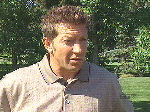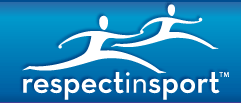2008 is the second year that the "Respect In Sport" project for Sheldon and his associates continues to make a name for itself.
From the Respect In Sport Website:
"Co-Founder - Sheldon Kennedy
Sheldon Kennedy skated for three teams in his eight-year NHL career and played for Canada's gold-medal-winning team in the 1988 World Junior Hockey Championships. He is best known for his courageous decision to charge his minor-league hockey coach, Graham James, with sexual assault for the abuse he suffered over a five-year period while a teenager under Graham James' care. Sheldon's subsequent decision to go public with the charges rocked the hockey world and thrust him into the media spotlight, where he became an unofficial spokesperson for millions of sexual abuse survivors in North America. His life story was made into an award-winning television movie, and he has appeared on Oprah, ABC's Nightline, W5 and The Fifth Estate. Through his work with Hockey Canada, the Canadian Red Cross and the International Olympic Committee (IOC), Sheldon has converted his tragic personal circumstance into positive social change. Through Respect in Sport, Sheldon continues his crusade."
Below are the archives for 2008.
Victim Services examines First Nation culture
![]()
Raising the respect level
TheSpec.com - Sports - Raising the respect level
Program empowers good parents to deal with the 'ranters and ravers'
Scott Radley
The Hamilton Spectator
(Feb 6, 2009)
The almost cartoon-like image of a typical minor sports parent has become
so ingrained in our minds over the years that it's hard to tell where
the stereotype ends and the reality begins.
Mention hockey parents -- just as an example -- and many folks immediately form a mental picture of a frothing-at-the-mouth crazy whose face advances through the various shades of the red spectrum during a typical game and whose vocabulary includes some words that haven't even been invented yet. The kind of adult who believes every referee came to the game with the sole purpose of screwing over his or her kid. And who thinks every supporter of the opposing team is a Nazi sympathizer.
Accurate? Nope. Not close. Most are completely sane folks who get frustrated now and then but who behave like responsible adults 99 per cent of the time.
Which is the creative beauty of a new program launched yesterday by SportHamilton. Respect In Sports -- originally a program designed to help coaches -- has been tweaked and reworked to become a project geared toward creating better sports parents. This year, somewhere between 500 and 1,000 moms and dads from local figure skating and soccer leagues will be invited to take part and learn about the problems with using guilt on kids, losing perspective on their abilities and living vicariously through them.
The plan is for more to follow.
But in a twist that sets this apart from other efforts to improve things for kids, this one's not aimed at the lunatics. Not directly.
"They're not really the target audience," says former NHLer Sheldon Kennedy, one of the co-founders of the program.
Instead, the goal of the online course, which takes about an hour to complete, is to give the good parents -- who are already on board with the concepts of not grinding the fun out of sports for their kids and remembering it's a recreation rather than a vocation -- ways to make things even better. And equally importantly, to offer advice on what to do when they see the moron parents acting up.
"When people don't know what to do, they leave, leaving only the ranters and ravers," Kennedy says. "(We're trying) to create a non-bystander."
Is that possible? We'll see.
Let's not forget that other programs have tried to weed out the troublemakers through various strategies. You'll notice they haven't been 100 per cent successful.
This one won't be perfect either. If only because the parents who create most of the issues are generally the last ones to see themselves as the problem. Nobody goes to a rink or a field or a court for a game thinking, "Hey, look at me, I'm the idiot who embarrasses everyone including my own kid."
But because this concept is appealing to the sense of the 99 per cent rather than the lunacy of the 1 per cent, maybe it can make some difference. In theory, it'll provide a brave parent the tools and practical advice needed to take a stand against a loopy mom or vein-bulging dad who's acting up.
If nothing else, the folks who've created the curriculum seem to understand that the only truly effective way to reach misbehaving parents is not programs or courses or politically correct platitudes, but peer pressure and confidence. Acquiescence through silence has done little to help to this point.
"We're not going to catch the bad guy," Kennedy says. "We need to empower people not to be bystanders and to do something."
It's not perfect. Nothing is, short of a epiphany in the mind of the idiots.
But it's certainly worth a shot.
sradley@thespec.com
Victim Services examines First Nation culture
Published: March 17, 2009 1:00 PM
Spurred by the bravery of NHL hockey player Sheldon Kennedy in announcing he had been sexually abused, Gerald Kiesman confronted his own secrets.
Kiesman, too, had experienced such mistreatment. A year after Kennedy’s proclamation, which helped lead to the arrest and conviction of junior hockey coach Graham James, Kiesman decided he needed to do something about his ordeal.
It was the beginning of a nine-year process that led him to a counselling profession in which he incorporates his culture – Haida Nation traditions.
“Understanding grieving and trauma (practices) is different for different nations,” he said.
Kiesman’s knowledge of North Coast traditional healing methods and First Nations cultures will be shared during volunteer recruitment for Greater Victoria Police Victim Services.
The agency invited him to be a part of its workshops on helping people deal with trauma and grief.
It’s the first time the service has focused on First Nations culture, victim services executive director Geraldine Glattstein said. The move is part of a push to widen accessibility to and diversity of its services.
“With all communities, it’s about developing a relationship,” she said.
As a way to encourage more people to use the service and to recruit volunteers with varying backgrounds, Glattstein said, Victim Services is looking at providing transportation, food and child-care subsidies for clients and volunteers.
“If you are serious about access and diversity you have to put your money were your mouth is.”
The agency needs roughly 60 volunteers to maintain its operations. Currently it has 30.
Training for positions consists of 70 hours over 12 weeks. Once completed, a volunteer works approximately three hours a week in the centre’s office and is on call once a month.
The next information session is being held today [Wednesday, March 18] at 6 p.m. at Victoria Police Department headquarters, 850 Caledonia Ave. Please RSVP to 250-995-7351. For more information, please visit www.gvpvs.org.
raldous@vicnews.com
Back To Top

